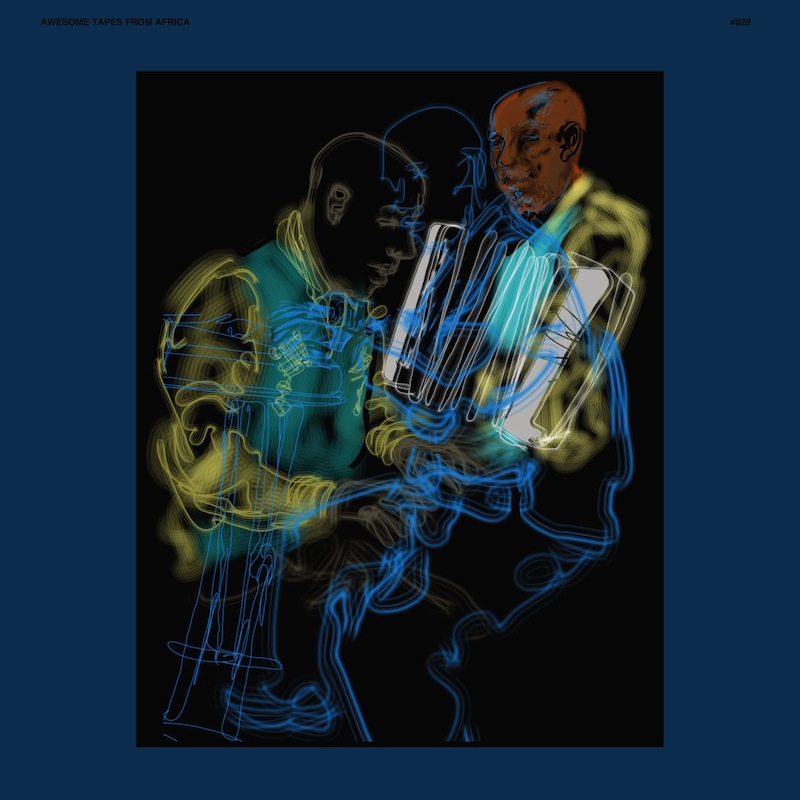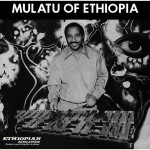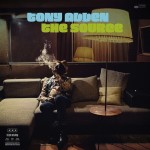Hailu Mergia : Lala Belu

If Hailu Mergia‘s legacy started and ended with “Musical Silt,” he’d still be the performer behind one of Africa’s most iconic musical exports. In the 1970s, Mergia was a member of the Walias Band, a group of musicians in Ethiopia that had also at one time featured Ethio-jazz’s godfather, Mulatu Astatke. During that decade, Mergia and The Walias would perform regular gigs at the Hilton Hotel in Addis Ababa, regularly playing to both diplomats and more vibrant dancefloor crowds alike. And in 1977, Mergia and the Walias released their best-known recording, Tche Belew, a funky, fuzzy collection of Ethio-jazz jams that yielded the iconic “Musical Silt,” a song that likewise featured Astatke and eventually became something of a jazz and Afrobeat standard, covered by the likes of Daptone-affiliated Afro-funk band Daktaris. Though it came to be a hard-to-find obscurity in the years following its release, particularly outside of its country of release, the lovingly curated Awesome Tapes from Africa label brought it back to life along with several other recordings from Mergia’s catalog.
For a lot of listeners and crate diggers, that’s about as far as the story goes. Yet Mergia never stepped away from music, though he did take a break from live performing for a while. In the ’80s he moved to Washington, D.C., where he earned a living driving a cab. And his output’s been a bit brief since then to say the least. He issued one album in 1985, and another in 1998, and that’s been about it. The past five years or so have been seemingly the most visible Mergia’s ever been, thanks to the reissues, which in turn brought him back to performing live. The music of Hailu Mergia has seen a minor revival in recent years, which has led to something even more remarkable: Lala Belu, the first new album by the Ethiopian-born multi-instrumentalist in 20 years.
In every conceivable way, Hailu Mergia has come a long way since his days of performing with the Walias. He’s literally thousands of miles from where he began, and four decades removed from his first major period of creative fertility. And yet the feeling of early recordings like Tche Belew is still present on Lala Belu. It’s considerably different sounding in a few major aspects. One of them is fidelity; though the fuzz and crackle of early Walias records lends them some of their mystique and, for that matter, funk, Lala Belu benefits from modern production values, sounding more like a contemporary North American jazz album in many respects. Closing track “Yefikir Engurguro,” for instance, simply showcases the beauty of Mergia’s piano playing in its own unadorned beauty. It’s gentle and soothing, yet still carries the cascading keystroke style that Mergia showcased on his earliest records.
As much as Lala Belu updates Mergia’s vintage Ethio-jazz sound in a major way, it’s still very much connected to his earliest recordings, simply because of the soul and groove he puts into it. Every track is loose yet melody-driven, with Mergia’s own performances driving each track. The opening “Tizita” is Ethio-jazz translated into a conventional jazz combo context, Mergia engaging in an accordion jam against a laid-back rhythm section. The groove deepens with standout “Addis Nat,” a psychedelic vamp that finds organ and melodica twisting their way around a slinky upright bassline, and the Afro-Latin jazz of “Gum Gum” is among the most vibrant numbers on the album.
Following a 20-year break between albums, Lala Belu feels like something of a minor miracle, simply by virtue of existing. But that’s only when one overlooks the fact that Mergia never really stopped playing music—even if he took an extended hiatus from performing. The classic grooves of ’70s-era Ethio-jazz are here in all their psychedelic regalia, but updated with a contemporary studio sound and a somewhat more spacious contemporary jazz vibe. It’s a welcome reintroduction to an artist ripe for rediscovery.
Similar Albums:
 Mulatu Astatke – Mulatu of Ethiopia
Mulatu Astatke – Mulatu of Ethiopia
 Tony Allen – The Source
Tony Allen – The Source
 Christian Scott – Ruler Rebel
Christian Scott – Ruler Rebel
Support our site: Buy this album at Turntable Lab
Jeff Terich is the founder and editor of Treble. He's been writing about music for 20 years and has been published at American Songwriter, Bandcamp Daily, Reverb, Spin, Stereogum, uDiscoverMusic, VinylMePlease and some others that he's forgetting right now. He's still not tired of it.

